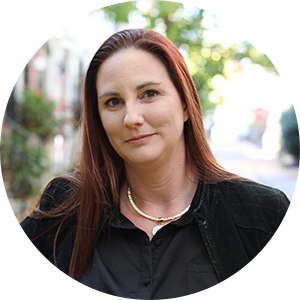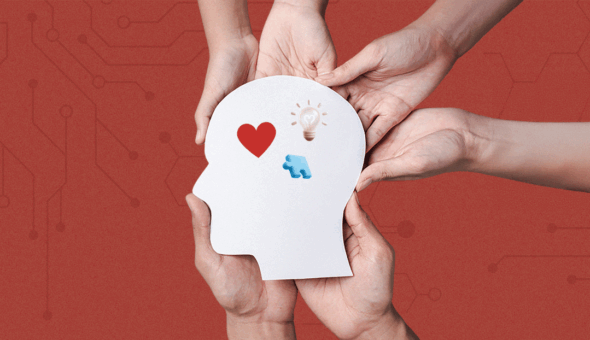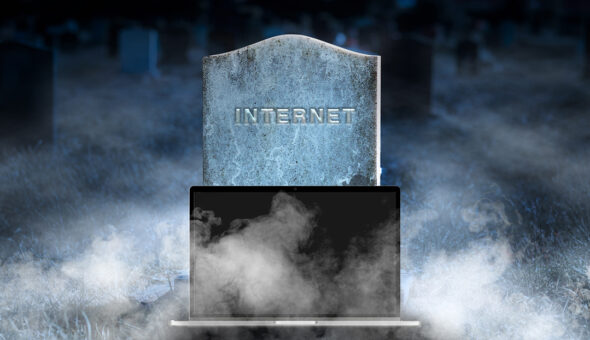Although Volt strives to recap conferences immediately, there are times when a bit of reflection and a more editorial approach are necessary. The 2023 AMA Symposium for the Marketing of Higher Education Conference is one such instance.
From AI to mental health and from culture to generational trends, higher ed leaders and marketers touched every aspect of the industry at this year’s conference. After two weeks of reflection, here are the four things that I am still pondering.
- AI is the cool kid, but what about mental health?
- Will Gen Alpha’s entitlement be a (worryingly) self-fulfilling prophecy?
- Trust is broken, but what is ‘trust’?
- Culture: what is it, does it matter, what if it is challenged?
1. AI is the cool kid, but what about mental health?
Artificial intelligence — as a potential blessing or an equally concerning curse — was on everyone’s mind. My favorite saying though was repeated no less than five times throughout the week: “AI is not going to take your job; someone who knows how to use AI will.” It did not matter whether I was in a conference room or the hotel lobby coffee shop, I overheard people wondering where to implement the new technology for efficiency without sacrificing ethics and academic integrity.
Unsurprisingly, the rooms were filled, and then some, for nearly every session devoted to artificial intelligence. Attendees who couldn’t find a chair either stood for the hour-long presentations or found a place to sit on the ground. AI has taken over higher education, and whether this is the result of fear or an overwhelming desire to learn is not yet clear. Regardless, it feels like everyone wants to “get up to speed” to make sure they aren’t left behind.
What was surprising is that there were nearly as many sessions devoted to student mental health, but these were not as well attended — with rooms half empty. Are we, as an industry, done tackling mental health issues? Because our students surely are not.
We have all read the studies that the pandemic’s impact on mental health may be even greater than the impact the crisis had on physical health. As professional-aged adults, the three-year(ish) blip of the pandemic is merely a drop in the bucket — something that we can put in context with the other 25-60 years of our lives. But for our college students, that blip was 15-17% of their current lifetimes.
According to a 2023 survey by TimelyMD, the numbers around student mental health continue to be troubling:
- Seven out of 10 (71%) students are experiencing mental health issues such as stress, anxiety and/or depression.
- More than three-quarters (78%) report the same or higher levels of severity as this time last year.
- Students’ top five stressors are their mental health (50%), followed by personal finances (39%), academics (37%), mass shootings (35%) and inflation/rising prices (35%).
Moreover, studies indicate that more than half of all college students meet the criteria for loneliness, which can contribute to more severe crises.
- 54% met the criteria for experiencing loneliness.
- 79% of surveyed students reported they had experienced moderate or high stress levels within the last 30 days.
- 29% met the criteria for suicidal ideation, while 3% reported attempting suicide in the past year.
- 12% had intentionally injured themselves within the year.
At AMA, the team at UC Davis presented the initiatives they implemented across their campus to counter this trend. By introducing a wide range of measures, from a website devoted to resources to stickers placed on the campus coffee cups, the UC Davis Aggie Mental Health program has begun to chip away at the stigma and the effects of mental health crises.
Although UC Davis acquired a grant for many of the team’s more ambitious endeavors, plenty of the ideas can be implemented on smaller campuses through peer-to-peer outreach and with minimal expense and extensive compassion. According to Jennifer Butler and Jennifer Vaughn, the initiatives would not have been as successful without the buy-in from numerous student affairs departments, faculty and students.
Two weeks after the AMA symposium, I — as the parent of a college student — am still concerned that more people did not attend the UC Davis workshop to spark ideas for use at their institutions. Are we so focused on the newest AI technology that we are going to move away from addressing mental health concerns before truly resolving them? Do we have the resources to embrace AI while alleviating stress and loneliness among students? Surely, this isn’t an either–or situation.
2. Will Gen Alpha’s entitlement be a (worryingly) self-fulfilling prophecy?
Marketing means forecasting trends and learning how to “sell” a product to a consumer. Higher education doesn’t like to use the words “customer,” “consumer,” “sell” or “industry,” but essentially the same holds for colleges and universities.
As Gen Z moves through the higher-ed marketing funnel, attention has now turned to the next wave of consumers: Generation Alpha. Some of these children have not even been born, but marketers are already predicting trends in their buying behaviors.
One such panel at AMA’s Higher Ed Symposium sought to outline a generation of potential college students based on their individual and professional experiences. As mothers of young children, University of Pennsylvania’s Kathryn Bezella, Northwestern University’s Dr. Lesley-Ann Brown-Henderson, Shady Side Academy’s Diana Toole and Ologie’s Dayana Kibilds have daily interactions with this upcoming cohort, as well as extensive experience in the education field.
The panel outlined key characteristics of the upcoming generation — the oldest of whom are now entering their sophomore year of high school — including digital hyperconnectedness, activism, concern about the climate and much more. All of these are admirable traits, and one could argue Millennials and Gen Z students were once predicted to have similar inclinations, albeit in different terms.
Interestingly, there were a few key points made during the discussion that had parents in the audience cocking their heads. Namely, the panel indicated that Gen Alpha students are already asking to have seats at the family table for major discussions, such as how to spend finances or “demanding” certain concessions in education. I overheard one parent indicate that the traits listed for the upcoming generation were textbook narcissism indicators.
I disagree that the outlook is that bleak, but I do agree that we should take a step back and avoid projecting potential traits on a generation that may backfire. Millennials were once told they would change the world. Although many have done amazing work in a variety of fields, the consensus (from previous and subsequent generations) became that Millennials were lazy and apathetic. Did the generation disappoint or did we place too much emphasis on what we hoped they would become?
I understand that, as marketers, it is important to know your audience and try to get ahead of the funnel by predicting trends and avenues for reach. However, much could be said for letting a generation of students “who cherish authenticity” tell us what they want instead of the other way around.
3. Trust is broken, but what is ‘trust’?
Some terms and phrases enter the higher education environment and simply become part of the lexicon. One such example is “the public’s distrust of higher ed.” We hear it. We believe it. But do we know what it means? Does it mean the same thing for every person or every institution? Probably not.
Morning Consult presented research that sought to determine the demographic distribution of trust/distrust in higher education. The presentation was illuminating, in that the perception of trust versus distrust in higher education institutions does appear to fall within political ties, with self-described Democrats trusting certain institutions more than self-described Republicans or Independents. Likewise, there were notable generational differences.
But what is ‘trust’? During the question and answer session, an audience member asked how “trust” was defined for the survey participants because trust can be deeply personal.
The answer was circular and, according to some attendees I spoke to after the session, rather frustrating. According to Rahul Choudaha of Morning Consult, the team ran “exhaustive data analysis to figure out the different attributes” of what is deemed trustworthy and determined trust is “personal, emotional and perceptual.” Choudaha noted that trust varies greatly among various populations, but that the trust/distrust answer is largely given based on a snap decision. He then went on to give examples, such as “Do you trust Beyonce or not?”
This lack of a definitive answer became a talking point among myself and others throughout the rest of the week. How can we seek to restore trust in an industry, if we don’t know what it is about higher education that people distrust? In answer to Choudaha’s hypothetical question: I trust Beyonce to make great music; I don’t personally know her well enough to entrust her with the education of my child. After all, trust is not just personal, it is contextual.
The same could be said for higher education. Which aspects of trust concern parents and prospective students? Are they concerned about the ROI of a particular college degree, a college’s ability to keep the student safe, the institution’s mental health programs, the faculty’s political inclinations or something else entirely? The term ‘trust’ is so nebulous that we will never begin to restore it if we can’t even define it amongst ourselves.
The answer to such a large and all-encompassing question may be an industry-wide effort to move beyond “which college” to “why college.” Luckily, organizations such as the Council for Advancement and Support of Education are looking to formulate collective campaigns to present the value of higher education to the public. It is only through these concerted efforts that higher education will be able to pinpoint how and where trust was lost and begin to rebuild it.
4. Culture: what is it, does it matter, what if it is challenged?
I attended two very different sessions about the culture of an institution and what happens when a crisis challenges that delicate environment. One, presented by the teams from the University of Virginia and Michigan State University, tackled how a brand’s reputation can recover after the scrutiny of a campus-wide crisis. The second, presented by the team from Skidmore College, addressed how crises can impact the internal morale of a department or institution and how to rebuild that culture.
These may seem disparate and unconnected. However, the symposium’s sessions and keynotes were infused with this underlying premise of culture and the many different forms it can take. Whether students, faculty, administrators or parents, each segment of higher ed has an idea of the culture that permeates their chosen college or university.
For the UVA and MSU teams, nationwide news coverage of horrific acts of violence and assault scandals challenged the institutions’ reputations. It was within these crises that the institutions dove headlong into shoring up brand awareness and brand reputation management.
Amidst increased political polarization, racial and ethnic tensions, gun violence and global conflict – as well as the associated protests that occurred on campus in response to these issues – UVA and MSU realized they needed to develop stronger brand strategies and to change public perception of campus culture. By cultivating broader connections and redirecting brand images, the two institutions rose above the fray and began to see measurable differences on and beyond the campuses.
Skidmore, however, experienced an internal shift in culture after personal and professional tragedies hit the team during and immediately after the pandemic. People were tired, burned out, lacking belief in themselves and their work and moving through their work days in survival mode. But surviving does not equate to thriving, and team members were choosing to leave the institution in waves.
As Julia Marco and Sara Miga noted, it was in this collective upheaval that a banana became a lifeline. Akin to a fruit basket elf-on-the-shelf, the banana moved around the office, got into surprising situations and recruited other inanimate objects to bring smiles and joy to Skidmore’s marketing department. It was through this mental and emotional shift that the Skidmore team redefined and recaptured their workplace culture and began to move beyond tragedy.
Presenters and attendees mentioned ‘culture’ frequently throughout the symposium, including the keynote address by Dr. Marcus Collins. Higher education is seemingly at a technological and ideological crossroads (i.e., AI, enrollment cliff, lack of trust, etc.), and many are seeking to define “who we are” as they tackle these issues.
As we close out 2023 and look toward 2024, I would love to hear your opinions on these questions. Will higher education solve the trust issue? Can we tackle mental health in a meaningful way? Will artificial intelligence become a useful tool or a technological nightmare? Will the next generation save the world or become a footnote in history? I am genuinely curious what you think the future of higher education will look like.









